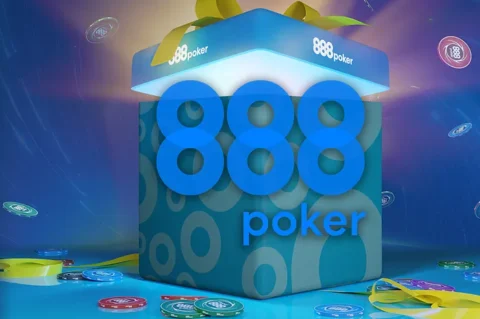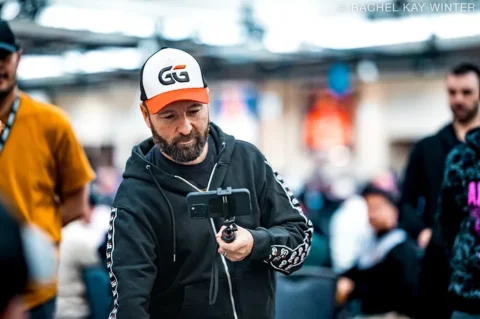Poker, in its many forms, has fascinated players for decades. As the game evolves, so does the way it’s played, with live poker bridging the gap between traditional casino tables and the growing online poker scene.
This article will delve into the nuances of live poker, offering insight into its unique dynamics, key differences from online play and strategies for success.
Understanding the Dynamics of Live Poker
Live poker is an exciting combination of strategy, skill and social interaction unrivaled by any other format. Be it around a physical table or through an online live dealer casino game, the action is designed to be just like being in the poker room. Specifically, live dealer games use real-time video streaming technology that connects players with professional dealers.
These games incorporate real cards and chips, where players can follow every deal and shuffle as if they were physically present. The immersive atmosphere constitutes the very allure of live poker. A player can see what the dealer is doing, interact with everyone who is virtually present around the table and feel that pressure of making decisions in real-time – all within the comfort of their living rooms.
Convenience combined with an authentic experience – perfectly mixes the factors that have powered the popularity of live dealer games and made it a staple in poker players’ lives.
Indeed, according to a report from Statista this year, one of the fastest-growing sections of all online gambling had millions of players chasing that live thrill. As for poker players, this will avail them the opportunity to hone their skills against real opponents in an environment as dynamic as possible in playing a physical casino.
Key Differences Between Live Poker and Online Play
There are several noticeable differences that the players of traditional online poker will notice in live poker. These differences range from not just apparent digital to physical but even in the speed and style of play.
Probably the most significant difference is in the game speed. Online poker is much faster, for it features automated dealing and no delays in handling cards or chips.
Hands often conclude in less than a minute, making it ideal for players who enjoy a rapid tempo. Live poker, on the other hand, is much slower and more deliberate. Dealers shuffle and deal cards manually and players take time when making decisions-which makes for a more methodical and immersive experience.
Another important difference is the ability to monitor physical tells. Online, players have to rely heavily on betting patterns, timing and game statistics in trying to read their opponents. Live poker adds a whole new dimension: body language, facial expressions and gestures. A slight tremble of the hand, a raised eyebrow, or even altered breathing can give away vital information about a player’s confidence – or their bluff.
Another very social aspect of live poker is that players can’t hide behind avatars or usernames as they do in online games; rather, live poker requires them to present themselves face-to-face with other players or at least through a live dealer game. This accountability often fosters a more respectful and traditional atmosphere, even in competitive scenarios. Players need to weigh the need for strategic thinking against their ability to be social in such an environment.
Strategies for Reading Opponents in Real-Time
But few challenges in live poker can equate to that reward as effectively learning to read an opponent. Keen observation, patience and the capability for interpretation while minimizing distractions determine your success.
Observe behavior patterns: Set a baseline by observing how players behave in hands they are not actively involved in. This helps to show underlying tendencies, whether aggressiveness in betting or folding too cautiously.
Inconsistency Identification: Sudden behavioral changes usually indicate a changed mindset of the player. For example, if a player is generally calm but starts fidgeting or avoiding eye contact, he may be on a bluff – or on an exceptionally good hand. Being able to recognize these inconsistencies will help you stay one step ahead of them.
Baselines: Each player at the table has a different baseline of behavior. Some players are naturally fidgety; others remain stoic regardless of their hand. You can, over time, observe your opponents to identify what is normal for them and notice deviations that may indicate nervousness or excitement.
Balance Your Observations with Strategy: Of course, physical tells are quite valuable, yet never absolutely sure. Experienced players will many times act nervous or show over-confidence just to lead their opponents in the wrong direction. Combine the observations with a betting pattern, position and the overall game flow for detailed analysis.
Research in the Journal of Behavioral Decision Making in 2022 investigated how psychology and decision-making interlink in poker. It showed that players who managed to combine observational skills with extensive knowledge of game theory reached appreciably better success, which underlines how a real-time approach should be combined with solid general knowledge of poker mechanics.
How to Adjust to Live Poker
For those who are new to live poker, adapting to its unique demands can be a steep learning curve. Here are a few ways to ease the transition:
Practice Patience: Fans find the transition to live poker games to be cumbersome because of how much slower the games are in comparison to online games. Take this as an opportunity to really think through your decisions and observe others.
Stay Focused: Live poker environments can get noisy, from players chatting with each other to dealers chatting it up. Train yourself to remain focused on the game at hand amid the din.
Be Observant but Subtle: While observing opponents is crucial, don’t make it obvious. Avoid staring or making your analysis too transparent, as this can put opponents on guard.
Learn Table Manners: In live games, one has to be aware of and respectful towards poker etiquette. From knowing when to act to keeping polite, these little things add to a pleasant experience.
Mastery of live poker is an unusually vital balance between technical ability, psychological insight and flexibility. Be it around the physical casino table or via live dealer platforms, live poker dares one to go in-depth with the game at hand and with fellow opponents.
By understanding its dynamics, recognizing the differences from online play and refining your ability to read opponents, you elevate your skills and enjoy the multifaceted experience that live poker has to offer.















